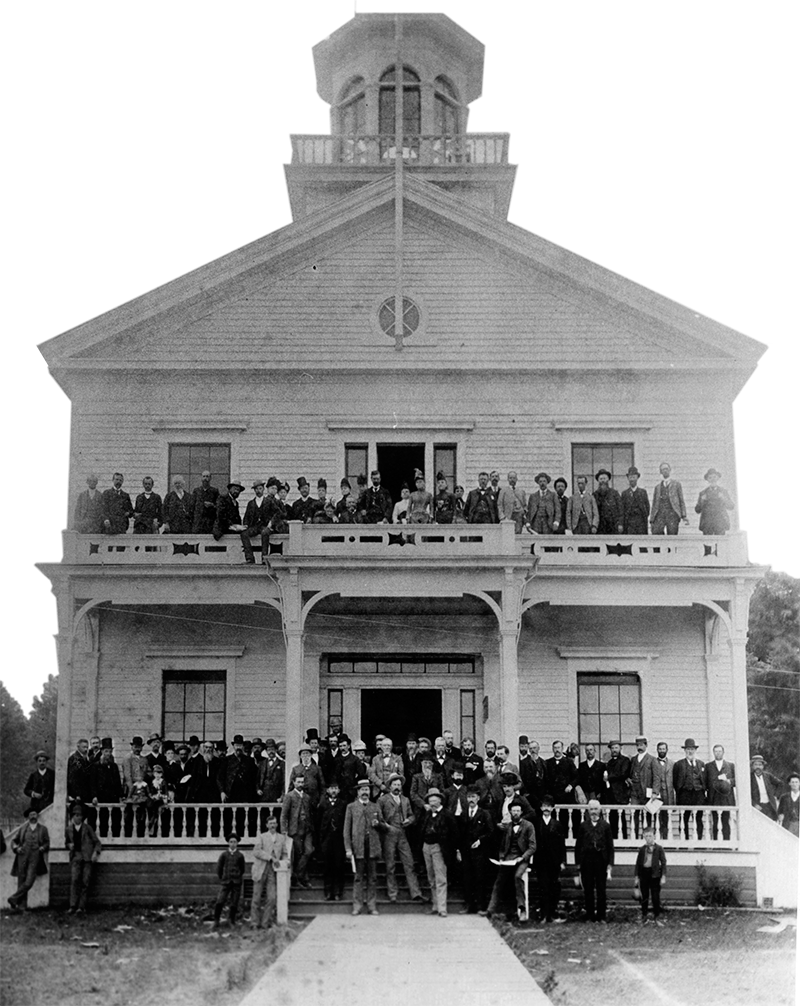Delegates
View Washington Constitutional Convention Members
The 1889 constitution makers came from the heart of America, the east coast and countries
worldwide. Because of the territory’s explosive population growth, the only delegate born in
Washington was a 31-year-old real estate agent named Gwin Hicks. Roots of the others can be
traced to California, the Midwest, Canada, Scotland and Germany.
Some 43 Republicans, 29 Democrats and three Independents made up the convention. But the real
split wasn’t along party lines. The convention was divided between “populists” and those
considered more business-minded. Together—in the fields of law, agriculture, real estate, mining
and more—these drafters represented a cross-section of 1889 life.
Delegates included George Tibbetts, a 44-year-old entrepreneur from Maine. Tibbetts fought in
the Civil War, was captured at the Battle of Deep Bottom in 1864 and incarcerated as a POW for
seven months. J.J. Browne from Spokane Falls ranked among the territory’s wealthiest men—he
bought a quarter of the town site when he arrived in 1878. Ohio native John Hoyt practiced law
and managed a Seattle bank; he was a former Michigan lawmaker and a Supreme Court justice in
Washington Territory. The convention named Hoyt president after delegate George Turner
withdrew from the race.
The youngest delegate, 30-year-old P.C. Sullivan from Nebraska, practiced law in Tacoma. A 69-year-old
farmer from Ritzville named D. Buchanan was the oldest member. The Scot arrived in
Washington some three decades before statehood. Buchanan’s tireless plea for reduced government
spending in the new state earned him the nickname “the thrifty Scotsman from Ritzville.”
As the men prepared to convey the fundamental governing principles of Washington state,
delegate Allen Weir from Port Townsend reminded them of advice given to North Dakota on its
own journey to statehood:
“Remember that times change, that men change, and that new things are invented, new devices,
new schemes, new plans, new uses of corporate power, and that such things are going on
hereafter for all time.”
The year 1889 did not mark
Washington’s first attempt at
statehood. In 1878, 15 delegates
drafted a state constitution in
Walla Walla that was ratified.
However, the bill died in a
congressional committee,
largely because the territory’s
population was too small.
